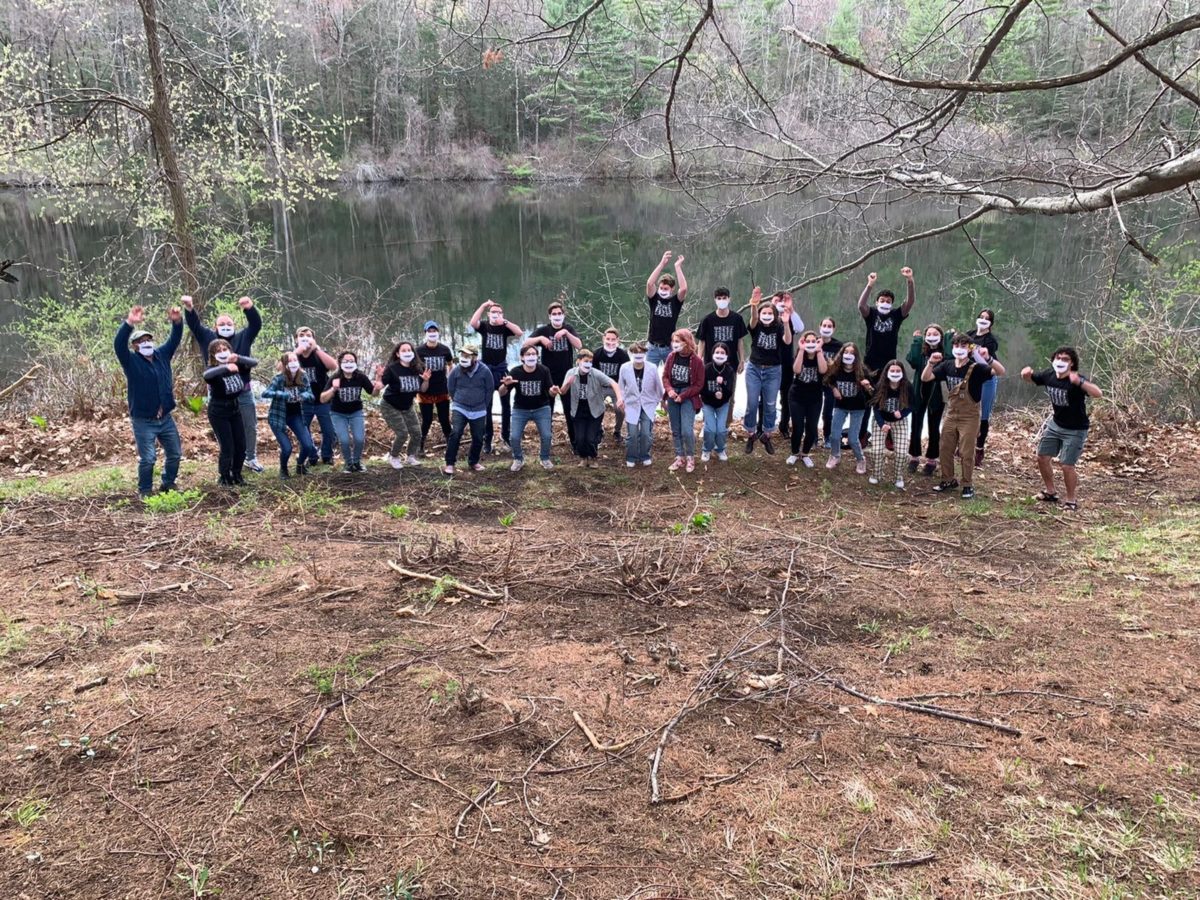Your Daily Phil: Creating a community to deal with death + Israel education vs. Israel advocay
Good Wednesday morning!
The Ruderman Family Foundation announced a grant of $1 million to the Academy of Motion Picture Arts and Sciences yesterday as part of its work promoting inclusion in the entertainment industry. The grant will fund inclusion and accessibility initiatives at the new Academy Museum, in addition to Academy Gold Rising, an internship program for communities underrepresented in the film industry.
The U.S. government has a responsibility to alleviate the problem of infertility, according to a resolution introduced yesterday by Reps. Debbie Wasserman Schulz (D-FL) and Dan Crenshaw (R-TX) and backed by the women’s organization Hadassah. The resolution, timed to coincide with National Infertility Awareness Week, recognizes that infertility is a disease that is increasingly widespread.
The Stephen M. Ross School of Business at the University of Michigan received more than $1 million from the Applebaum Family Philanthropy to support its “Business+Impact” initiative of multidisciplinary educational offerings that combine social impact, sustainability, poverty alleviation and policy. The gift will create a permanent endowed fund for need-based internships and scholarships.
The value of a volunteer hour in 2020 was $28.54, according to a new report from Independent Sector, a membership organization for nonprofits, foundations and corporate giving programs. The group calculates the value of volunteer time by averaging the annual hourly earnings of all private sector workers, except those who are managers or farmers. In New York, a volunteer’s hour was worth $33.17; in Florida, $26.32; in New Jersey, $31.41.
LIFE AND DEATH
A new group aims to make death a part of Jewish life


Courtesy
As Sarah Gould Steinhardt’s grandfather lay dying in January 2018, the family knew that medical professionals were taking the best possible care of him physically. But they had nobody to help him — or them — with spiritual matters. “We were all in the hospital every day, all day, all night. And nobody knew what to do from a Jewish perspective,” Gould Steinhardt said. Months later, while on a trip to Israel with Natan, the giving circle of which she is a member, Gould Steinhardt was still thinking about those feelings of confusion and loss. She began to discuss them on a hike with Felicia Herman, then Natan’s executive director, who’d had a similar experience with an uncle. The two women began to realize that many people probably had the same difficulty thinking about and planning for death in a Jewish way, and that Natan could address those challenges. “There is and has been for so long such a taboo in talking about what your own personal end of life might look like. But not talking about it, it becomes even scarier,” Gould Steinhardt told eJewishPhilanthropy in a conversation about the origins and plans of the Shomer Collective, the Natan-incubated project that aims to support both Jewish professionals whose work involves death and the individuals seeking Jewish wisdom on the subject.
Talking through the taboo: In July 2018, the women invited other Natan members to join them in a year-long course of study about death and dying, facilitated by Rabbi Melanie Levav, who had just been ordained by the Jewish Theological Seminary. The initial meeting used the Jewish edition of the Death Over Dinner book, the primary tool of an international movement started in 2013 to encourage such conversations. Levav had worked in the Jewish community her entire career, including a formative stint as a social worker in the Russian-speaking community in South Brooklyn, where she worked with a family that couldn’t tell a father that his daughter was dying until after she was gone because they were so afraid to talk about death. This and similar experiences inspired her to apply to rabbinical school. “I wanted to talk about death and dying grounded in Torah,” she said.
Pandemic impact: The project was sponsored by NatanLab, the group’s incubator. After that first year, Natan paid a consultant to help Levav develop and position it as an independent organization. It gained nonprofit status through fiscal sponsorship by the FJC: A Foundation of Philanthropic Funds and was given its name. The word “Shomer,” or guard, in the name of the collective is a reference to the person who watches over a Jewish body between death and burial. “Just as a shomer accompanies a Jewish soul, we are going to accompany people as they explore how they want to live in the face of death,” Levav said. The coronavirus pandemic made the Jewish community more receptive to the Shomer Collective as it began to take shape, but the need for it predated the virus, said both Gould Steinhardt and Levav. “We’re not the first generation to deal with a pandemic and a plague, there’s a lot of Jewish wisdom about this, but we’re not talking about it,” Levav said.
THE JEWISH ENTERPRISE
A Communal Journey: reflections on a half-century


Shutterstock
“As I complete fifty years of service and study of the Jewish communal scene, it’s an appropriate time for reflection and assessment,” writes Dr. Stephen Windmueller in an opinion piece consisting of “take-aways” drawn from this period of time.
Extraordinary leaders: “Watching both lay persons and professionals perform in their respective roles provides some critical insights as to how individuals shape outcomes and influence communal culture… Professionals impact and shape outcomes, but their biggest contributions are most likely in inspiring, educating and engaging their lay partners. The ‘dance’ that defines the lay-professional connection can be extraordinary as it can be toxic.”
Ego as a defining element: “Observing how leaders embraced their roles and responsibilities may be among the most amazing scenarios. For some, both lay and professional, their tenure would totally be defined by their personality and their presence. This cult of personality model may be satisfying to the individual player but can be destructive in building institutional culture and coherence.”
choices
Israel advocacy and Israel education — leadership must decide


JPPI
“The conflation of Israel advocacy and Israel education has resulted in growing numbers of North American Jews ill-prepared to understand and negotiate the complexity of contemporary Israel,” writes Dr. John Ruskay in an opinion piece for eJewishPhilanthropy.
Advocacy and education: “If Israel advocacy can be understood as mobilizing American Jewry to stand with and champion the people of Israel as they build the state, Israel education can be understood as providing settings to study the historic connection of the Jewish People with Israel, the history of Zionism, the history of Jews and Palestinian Arabs in Palestine/Israel, and to understand and work their way through some of the difficult ‘gray areas.’ The purpose of Israel education is both to deepen connection with the State of Israel and its people and to provide contexts for students young and old to develop their own visions of what Israel can and should be.”
The Israeli reality: “The reality of Israel is complicated. In all societies, one’s founding mythic history avoids nuanced issues and there is often distance between a country’s lofty ideals and contemporary realities. Americans are now grappling with this vis-à-vis race in America. The delta between what is and what could be, the world as we know it and our visions for the future, provides the context for deep study, for more deeply understanding Israel, and for determining how one can most effectively be an ally in shaping Israel’s future.”
Worthy Reads
No Withholding: Louis Goffinet, a Connecticut man who used Facebook to raise $40,000 on groceries for hungry neighbors last summer, has been hit with a tax bill of $16,000 because he is an individual, not a nonprofit organization, and the money he raised counts as income, reports Teo Armus in the Washington Post. A middle school science teacher, Goffinet had planned to raise $200 and was pleasantly surprised by the amount of money he raised when his appeal went viral on the social media platform. He’s gone back to Facebook, this time for himself: “It’s so uncomfortable. It feels weird to be asking anyone for money. And now to be asking it purely for myself is so bizarre and really out of my comfort zone,” he said. [WaPo]
Funny Money: Cryptocurrency like Bitcoin might not supplant the dollar as the world’s dominant form of wealth exchange, but it could yet reshape philanthropy by empowering crypto billionaires, who are often eccentric, to make eccentric gifts, reflects Tyler Cowen in Bloomberg. Individuals who have made their wealth in cryptocurrency are usually younger, and disinterested in funding the operations of traditional nonprofits. “Expect a relative decline in the influence of longstanding nonprofit institutions — and more weird, stand-alone projects. Bitcoin itself is a weird, stand-alone project,” Cowen writes. [Bloomberg]
Hybrid Model: Prithwiraj Choudhury, a Harvard Business School professor widely consulted as companies and organizations return to in-person work, says that employees and teams should make decisions about how to structure their schedules, not just CEOs or any one individual, writes Eric Rosenbaum on CNBC. Employees tend to favor hybrid work, and it also has been shown to increase productivity, but employers who don’t make necessary organizational changes will not reap those benefits, Choudhury said: “That is a recipe for disaster. The best practices have come from the GitLabs of the world because they reinvented the best practices,” he says, referring to the all-remote tech startup he has studied. [CNBC]
Giving Back: In Inside Philanthropy, Liz Longley reviews several recent major gifts that demonstrate the fundraising truism that those who give to veterans’ causes have themselves served in the military, or have a family member who did. Most recently, the San Diego-based Epstein Family Foundation, created by real estate executive and U.S. Army veteran Daniel J. Epstein and his wife Phyllis Epstein, gave $10 million to the RAND Corporation to start a veterans’ policy research institute. Longley also features Steve Cohen, the billionaire philanthropist whose son served in the Marine Corps and who donated $275 million to the Cohen Veterans Network, and U.S. Army veteran Lieutenant Colonel Jennifer Pritzker, founder of the Pritzker Military Museum & Library and a donor to the charity Jewish War Veterans. [InsidePhilanthropy]
Community Comms
Apply! The Jewish Council of the Emirates Community Centre seeks a Dubai-based Executive Director.
Apply! The Kirsh Foundation seeks a full-time NY-based Program and Special Initiatives Coordinator.
Apply! Want to join the team at Jewish Insider/eJewish Philanthropy? We’re looking for a top-notch philanthropy editor. Learn more here.
Be featured: Email us to inform the eJP readership of your upcoming event, job opening, or other communication.
Word on the Street
The New Israel Fund awarded $42,000 in grants to 14 individual Israeli artists… Shari Arison is selling 25% of her stake in Bank Hapoalim… In the U.K., attending online shul services can now count toward completing points to prove they are eligible to attend Jewish schools… Israel and the U.K. are exploring a ‘green corridor’ for vaccinated travelers…
Pic of the Day


Bronfman Fllowship
Bronfman 2020 fellows are attending their first gathering as a cohort outside of Zoom at Isabella Freedman Jewish Retreat Center
Birthdays


GPG
Co-founder of the Russian Jewish Congress, the Genesis Prize and the Genesis Philanthropy Group, Mikhail Fridman…
Insurance agent, Irving Silberberg… Comedian, director and actress, Elaine May… Board member of The Associated: Jewish Federation of Baltimore, Howard Rosenbloom… British chemist and emeritus professor at the University of Cambridge, Sir Alan Roy Fersht… Former White House Chief of Staff (1988-1989), Kenneth Duberstein… Award winning folklorist and author, Howard Schwartz… Former Lieutenant Governor of Connecticut, Nancy S. Wyman… Walnut Creek, California based interior designer, Marilyn Weiss… Emergency physician for Kaiser Permanente in Panorama City, California, Joseph Edward Beezy… UCSB mathematician and an early winner of a MacArthur genius fellowship, Michael Hartley Freedman… Rabbi, psychologist, and writer, Susan Schnur… Professor of law at George Mason University Law School, Michael Ian Krauss… Australian barrister who is a member of the New South Wales Legislative Assembly following 31 years as Mayor of Botany Bay, Ron Hoenig… Rabbi at Temple Ner Simcha in Westlake Village, California, Michael Barclay… Chicago-based lobbyist and attorney, Scott D. Yonover… Washington correspondent for DealBook, Ephrat Livni… Founder of I Was Supposed to Have a Baby (IWSTHAB), an online community geared toward Jewish women experiencing infertility, Aimee Friedman Baron… Pulitzer Prize-winning investigative reporter for The New York Times and best-selling author, Jodi Kantor… Head of business development and innovation at Birthright North America, Ifat Bechor… Director of social television at CNN, Eric Weisbrod… Voice actress, Shayna Bracha Fox… VP of business development and investor relations at FTV Capital, Robert J. Kaufman… Once the top ranked collegiate female tennis player in the U.S. and currently the head women’s tennis coach at the University of Oklahoma, Audra Marie Cohen… Program coordinator at Israel 21c, Alexandra Cohen… Manager of digital marketing at 97 Switch, Joshua Gibbs… Outfielder for MLB’s Chicago Cubs, he played for Team Israel in the 2013 World Baseball Classic, Joc Pederson… Writer, magazine editor and actress, Tavi Gevinson…








